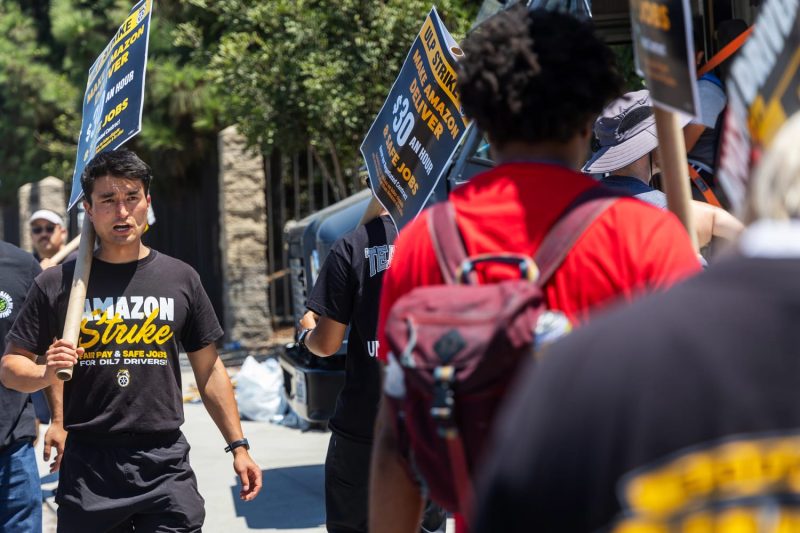Amazon Hikes Wages for Contract Delivery Drivers as Union Pressures Grow
The e-commerce giant Amazon recently announced an increase in wages for contract delivery drivers, a move that comes as union pressures continue to grow within the company. This development signals a shift in Amazon’s labor practices, responding to calls for better treatment of its workforce.
The wage increase for contract delivery drivers indicates Amazon’s recognition of the crucial role these workers play in its operations. By offering a competitive wage, Amazon aims to attract and retain talent in an increasingly competitive labor market for delivery services. This move also aligns with the company’s efforts to improve its image and address concerns about working conditions.
Amazon’s decision to raise wages for contract delivery drivers comes at a time when the company faces mounting pressure from labor unions seeking better pay and working conditions for its employees. The move can be seen as a strategic response to these pressures, demonstrating Amazon’s willingness to adapt its labor practices in response to external scrutiny.
Moreover, the wage hike for contract delivery drivers may indicate a broader shift in Amazon’s approach to labor relations. By proactively addressing concerns about wages and working conditions, Amazon seeks to pre-empt potential unionization efforts and mitigate negative publicity that could tarnish its brand. This proactive stance reflects a recognition of the importance of labor relations in shaping public perception and maintaining the company’s reputation.
The decision to increase wages for contract delivery drivers may also have implications for Amazon’s broader workforce. By setting a precedent of higher wages for certain categories of workers, Amazon may face pressure to extend similar benefits to other employees across its operations. This could create a ripple effect within the company, leading to wage increases and improved working conditions for a wider range of workers.
In conclusion, Amazon’s decision to raise wages for contract delivery drivers marks a significant development in the company’s labor practices. As union pressures continue to grow, Amazon’s response reflects a strategic approach to labor relations, aimed at balancing the interests of its workforce with its business goals. This move highlights the evolving dynamics of labor relations in the e-commerce industry and underscores the importance of proactive engagement with workers’ concerns.
